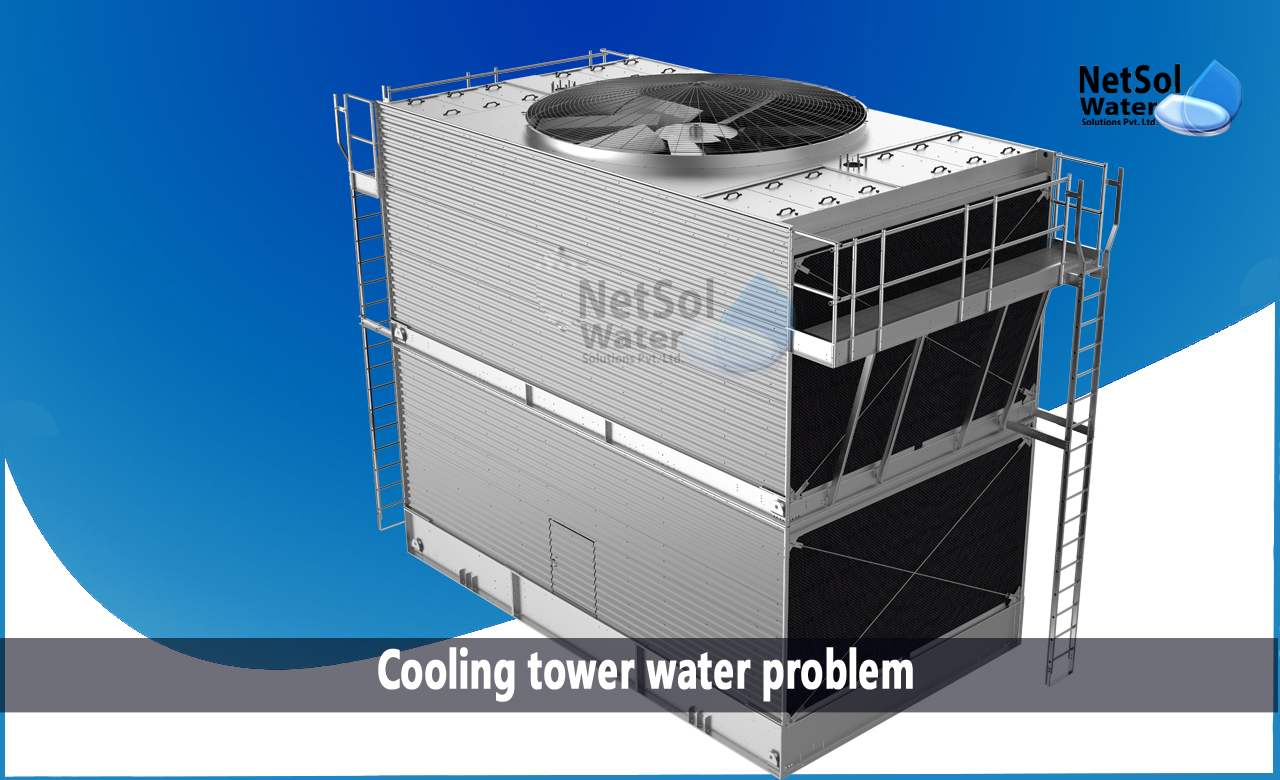Cooling towers are heat exchangers frequently employed for cooling large buildings and eliminating heat built up from industrial processes. Waste heat is eliminated by these towers via water evaporation. However, a variety of problems that affect cooling towers can lead to damage or ineffective cooling. Facilities need to be aware of the typical issues that cooling towers can have, particularly issues with treating the water in the cooling towers, to save expensive repairs and replacements.
This article discusses typical cooling tower water treatment issues and how a cooling tower water treatment expert can assist in their resolution.
What are the Common Cooling Tower Problems & Solutions?
Microbes other than viruses and bacteria can pollute your water source. A biofilm, often referred to as a slime, can develop over time on the heat transfer surfaces of your cooling tower due to microbial deposits like fungi and algae.
1. Biological Contamination:
Due to the hindered heat transmission caused by these biofilms, your tower may experience severe fouling and cooling inefficiencies as they grow. If the deposits are severe enough, they may also impede the free passage of air and water, weighing down the tower's structural members and perhaps leading to their failure.
Solution:
· By taking water samples, a cooling tower water treatment expert can determine the biological pollution present in the cooling tower. The expert will assess the type of contamination in the water by examining the sample and will then decide how to treat the water most effectively. The expert will take additional samples for examination throughout the treatment procedure to ensure that all toxins are removed from the system.
· Treatment for biological contamination frequently involves shocking the cooling tower's water with chlorine to eliminate any impurities, followed by a flush and a new water refill. However, chlorine is a corrosive substance that, if used regularly, can harm the interiors of cooling towers. To help prevent microbiological contamination, cooling tower water treatment experts may choose to utilize various chemicals for treatment and recommend a consistent treatment plan.
2. Corrosion:
Every water system is susceptible to corrosion. Metals inherently corrode when they come into touch with water, which happens naturally. Due to the chemicals used in water treatment and the high concentration of electrolytes in the water as a result of evaporation, cooling tower systems are especially susceptible to corrosion. Furthermore, as corrosion is an electrochemical process by nature, water corrosivity rises with high conductivity in cooling tower water.
Solution:
· Epoxy coatings: In some cases, an expert may advise using an epoxy coating to assist prevent corrosion. Epoxy coatings act as a water-repellent barrier on metal surfaces.
· Corrosion inhibitors: To help stop corrosion-causing chemical processes, several inhibitors may be added to the water. Common inhibitors include those that prevent anodic corrosion, such as orthophosphate, by forming shielding oxide layers on metal surfaces. Other possibilities include cathodic corrosion inhibitors, which produce precipitates on surfaces to thwart corrosion. Examples of these include zinc and polyphosphate.
· Controlling pH levels: Because corrosion can also be caused by high pH, another method is to control pH to get it as close to neutral as feasible.
3. Scaling:
Scaling takes place within a cooling tower when the amount of dissolved solids becomes greater than their solubility in the water. Scale is frequently caused by calcium sulfate, calcium phosphate, and other calcium salts, as well as by certain substances like silica or silicates in excessive concentrations.
Scale will affect the heat transfer surfaces in your tower and reduce the cooling efficiency, much like biological buildup does. Because some materials tend to have decreased solubilities as the temperature rises, scale can be a particular issue in cooling towers.
Solution:
· Conductivity monitoring: One of the main reasons of scaling is calcium buildup, which may be measured using conductivity monitoring. One of the greatest strategies to avoid scale caused by water hardness is to make sure that the cooling water conductivity range is within parameters.
· Chemical monitoring: Many dissolved minerals, particularly those added during chemical treatment procedures, might result in the formation of scale. With the assistance of a qualified cooling tower water treatment specialist, routinely check the chemical composition of the water to make sure that specific salts and compounds do not exceed solubility limits and adapt the treatment procedures as necessary.
· Removal by blowdown: Removing water from cooling towers that has a high concentration of minerals can be done by blowdown. Scale can be avoided by implementing a regular blowdown treatment programme for cooling towers.
Do you need an advice or assistance on selecting the best water and waste water treatment unit? We have solutions for all your problems!
Let us now your problem, our experts will make sure that it goes away.
For an assistance or related query,
Call on +91-965-060-8473
Or write us at enquiry@netsolwater.com



